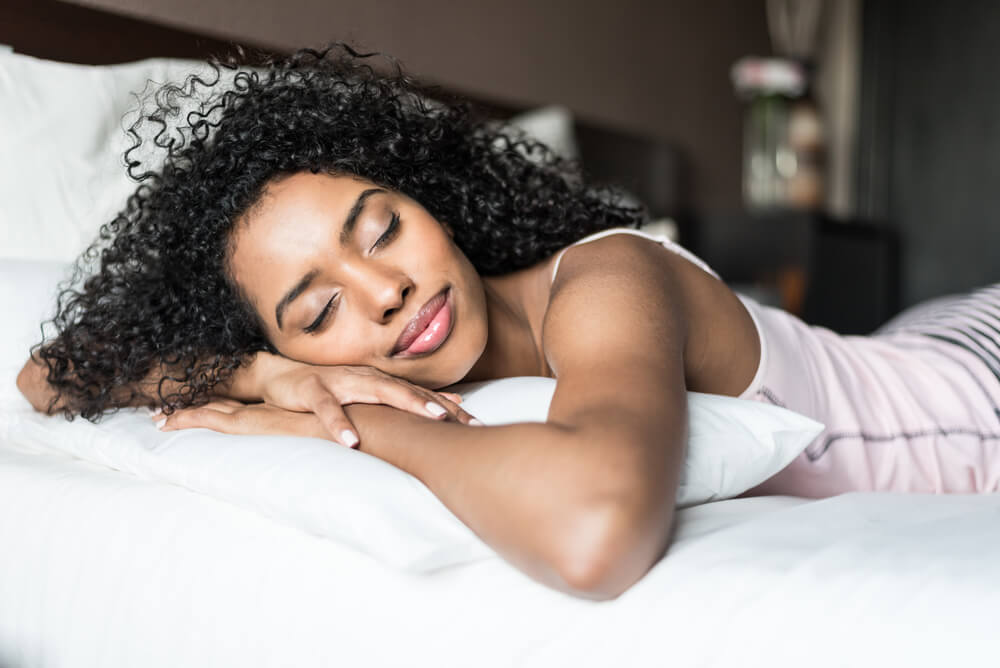Eight hours of sleep per night is considered a golden rule for all healthy adults around the world.
But some people think it’s too much. And that’s natural. There are so many things around us to explore and try that sleeping for 8 hours per night may seem like missing out on something.
So we cut down on sleep. And then feel like zombies the morning after.
But here’s the great news:
You don’t have to do this anymore. These simple tips will allow you to improve the quality of your sleep so that you can sleep less and still feel refreshed every morning.
Get Rid of Sleep Debt
You’ll be surprised to hear it, but more than 35% of all US adults are sleep-deprived.
Of course, this is mostly connected to the fast way of life and the fact that many people — such as first responders, doctors, night cafe workers, etc. — have an irregular schedule.
Sleep deprivation is a significant health concern. Insufficient shut-eye is linked to a host of pathologies, including obesity, metabolic syndrome, memory impairment, and mental disorders.
Thus, if you constantly lack sleep, you need to repay your sleep debt first. Here are some ways you can do this:
- Rethink your sleeping schedule. Try to fall asleep and wake up at the same time. Familiar patterns are essential for our brain, as they allow it to control and predict the situation. So, sticking to the same bedtime and wake time will shorten your sleep onset and improve sleep quality.
- Indulge in sleep. Severe sleep deprivation is actually the only reason to oversleep on weekends. Because once you have your sleep debt repaid, you won’t need to oversleep anymore.
- Schedule naps. If you have a chance to snooze at the nightshift or during the day, use it. Just avoid napping for longer than 90 minutes and do not doze off later than 3 hours before the actual bedtime.
Usually, it takes 3-4 days to get rid of sleep debt by following these tips. And once you get to that point, you will need to start planning your sleep schedule properly.
Plan Your Day Ahead
Ideally, you should outline the main events of the next day before you go to sleep.
Why?
Again, patterns.
By turning your thoughts into words, you organize them and help yourself proceed them. Your brain gets to see a structure that is predictable and easy to control, which prevents anxiety and overthinking, especially if your next day is full of important events.
Also, by creating a structured list, you will be more productive throughout the day, and every task accomplished will load your brain with a serotonin boost. Serotonin is our happy molecule. It regulates our sleep-wake cycle and may reduce sleep onset, so by naturally increasing its levels, you promote better sleep for yourself.
Upgrade Your Mattress
If you wake up groggy and exhausted despite getting enough sleep, the reason for this may be hidden in your bed.
Literally.
An uncomfortable mattress makes you toss and turn, so you spend more time trying to get cozy. Also, a mattress that is more than seven years old may be unable to support your spine properly, which can lead to aches and pains.
The modern market is saturated with mattress brands, so shopping for a new bed can quickly become a headache.
But it’s easier than it sounds.
You have an opportunity to choose among the four mattress types:
- traditional innerspring;
- cradling memory foam;
- innovative hybrid;
- and eco-friendly latex.
Each of them has its pros and cons and may suit different kinds of users.
Create a Soothing Routine
Back to patterns, once again.
If you are struggling with falling asleep each night, a relaxing evening routine can be the solution you need. Studies find that a healthy amount of repetitive behavior can reduce anxiety and alleviate stress, helping you fall asleep faster.
Here are a few examples of soothing rituals:
- Warm shower. Warm water has a relaxing effect and can promote sleepiness by affecting your body temperature. See, your temperature needs to drop a bit to trigger melatonin production. So, when you first raise it and then get into a cooler bed, the drop will be more pronounced, and hence, you’ll get drowsy faster.
- Self-massage (or massage session). If you’re an office worker, then a stiff neck or pain in the lower back can easily kill your sleep. Try to schedule a massage session or use heated massagers to relax stiff areas before sleep.
- A cup of tea. Warm tea has the same effect as a warm shower. Plus, decaffeinated herbal teas, such as chamomile or passionflower, are rich in various chemicals that have a relaxing effect.
- Reading. Reading is a calming activity. When you read a book, you transfer yourself to another world, which may help switch off anxious thoughts caused by the real world around you.
You can use these tips or come up with your own relaxing recipe. The goal here is to allow yourself to wind down and naturally induce sleepiness.
Stay Active Throughout the Day
Physical activity is your best ally if you want to get more quality sleep. It increases the percentage of deep sleep throughout the night. And the deep sleep phase is the most therapeutic for both your body and your mind.
Studies found that some types of exercise are better to perform in the afternoon, between 2 and 6 p.m., because that’s when your body temperature is the highest and your muscle function is increased.
Of course, it’s not mandatory.
A good rule of thumb is to move more and get at least 150 minutes of moderate-intensity activities a week. If you can do more, it’s great. But note that it’s better to avoid scheduling a workout session later than 2 hours before bedtime, or else you risk going to bed overly agitated, which may result in difficulty falling asleep.
—





Leave A Comment